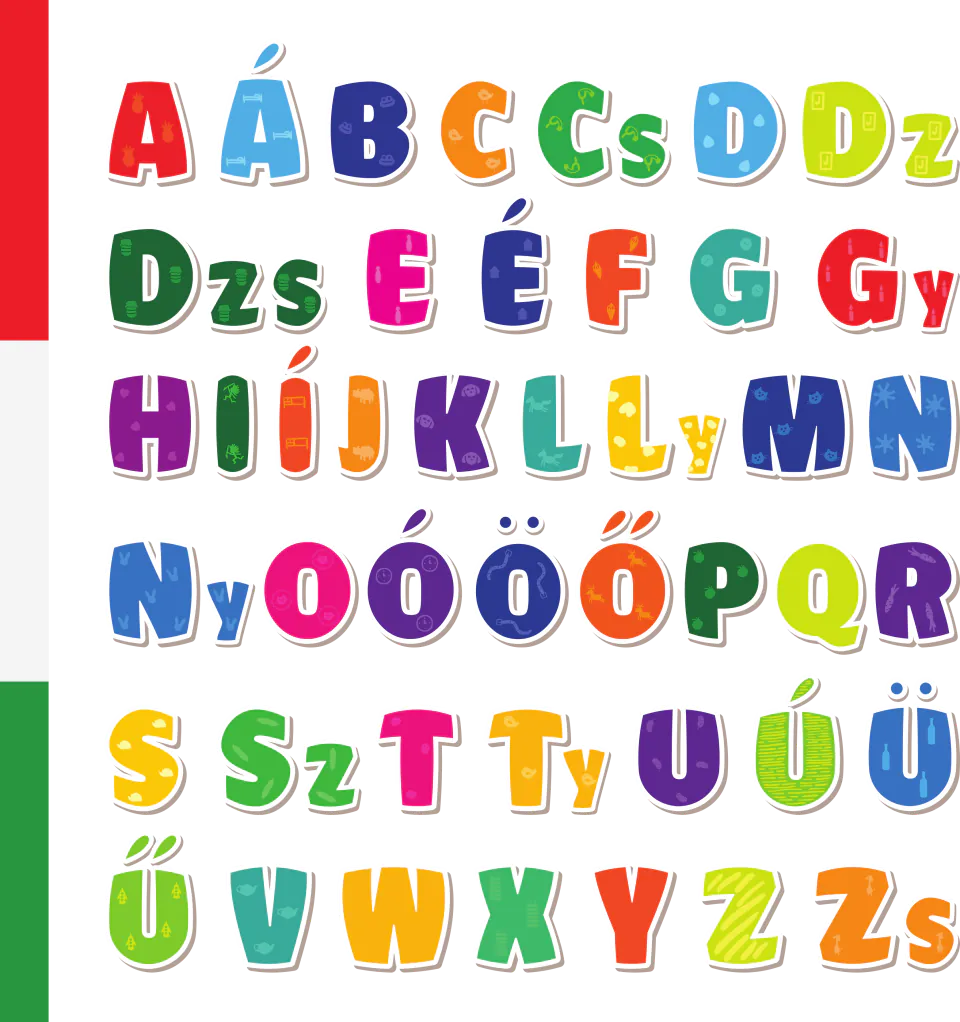Budapest Language Tips
Stepping into Budapest feels like entering a linguistic time capsule. The melodic sounds of Hungarian, or Magyar as locals call it, drift through the thermal bath halls, echo across the Danube bridges, and animate every café conversation. While English serves you well in tourist zones, learning even a handful of Hungarian phrases transforms your entire Budapest experience from tourist observation to genuine cultural connection.
Hungarian belongs to the Finno-Ugric language family, making it a distant cousin to Finnish and Estonian but completely unrelated to neighboring German, Slovak, or Romanian. This unique heritage creates those distinctive sounds that make Hungarian so captivating yet challenging for English speakers. The good news? Hungarians genuinely appreciate any effort to speak their language, no matter how imperfect your pronunciation might be.

Understanding Hungarian Sounds
Hungarian pronunciation follows logical patterns once you grasp the basics. Unlike English, Hungarian is largely phonetic – words sound exactly as they're written. The challenge lies in understanding what each letter actually sounds like, since many differ dramatically from their English counterparts.
The most important rule to remember is that stress always falls on the first syllable of every word. This simple pattern immediately makes you sound more natural when speaking Hungarian. Additionally, vowel length matters significantly – a short 'a' versus a long 'á' can completely change a word's meaning.

Several letter combinations consistently trip up English speakers. The letter 's' in Hungarian sounds like English 'sh', while 'sz' produces the English 's' sound. This means Budapest is actually pronounced "Buda-pesht." Similarly, 'gy' creates a soft 'dy' sound, 'ny' resembles the Spanish 'ñ', and 'zs' sounds like the 's' in "pleasure."
| Hungarian Letter(s) | English Sound | Example Word | Memory Tip |
|---|---|---|---|
| a | like 'o' in 'hot' | Jó napot (Good day) | Short, open 'o' sound |
| á | like 'a' in 'father' | Jó éjszakát (Good night) | Longer 'ah' sound |
| gy | like 'j' in 'Jerry' | Hogy vagy? (How are you?) | Soft 'dy' sound |
| ny | like 'ni' in 'onion' | Mennyibe (How much) | Like Spanish 'ñ' |
| s | like 'sh' in 'ship' | Budapest (Buda-pesht) | Hungarian 's' = English 'sh' |
| sz | like 's' in 'snake' | Szia (Hi) | Hungarian 'sz' = English 's' |
| ö, ő | like 'er' in 'fern' (no 'r') | Köszönöm (Thank you) | Purse lips, say 'eh' |
| ü, ű | like 'ew' in 'few' | Sürgős (Urgent) | Purse lips, say 'ee' |
Essential Greetings and Politeness
Hungarian culture values politeness highly, making proper greetings and courteous expressions your gateway to positive interactions. The informal "Szia" works perfectly with younger people and peers, while "Jó napot" serves as your reliable formal greeting throughout the day.

"Kérem" (please) transforms any request into a polite interaction. Whether ordering coffee or asking for directions, adding this simple word demonstrates respect for Hungarian social customs. "Köszönöm" (thank you) remains your most valuable phrase – Hungarians notice and appreciate gratitude expressed in their language.
| English | Hungarian | Pronunciation | When to Use |
|---|---|---|---|
| Hello (informal) | Szia | SEE-yah | With peers, younger people |
| Good day | Jó napot | YOH nah-poht | Main formal greeting |
| Good morning | Jó reggelt | YOH reg-gelt | Until 10-11 AM |
| Good evening | Jó estét | YOH esh-tayt | Evening greeting |
| Please | Kérem | KAY-rem | With any request |
| Thank you | Köszönöm | KUH-suh-num | Standard polite form |
| You're welcome | Szívesen | SEE-veh-shen | Standard response |
| Excuse me | Elnézést | EL-nay-zaysht | Getting attention, apologizing |
| Yes | Igen | EE-gen | Affirmative response |
| No | Nem | nem | Negative response |
Navigation and Getting Help
Budapest's winding streets and thermal bath complexes become much easier to navigate when you can ask for help in Hungarian. "Hol van a...?" (Where is the...?) opens doors to friendly assistance from locals who appreciate your linguistic effort.

Transportation becomes smoother with basic Hungarian phrases. "Egy jegyet kérek" (One ticket, please) works for metro, tram, and bus tickets throughout the city. Understanding "Bejárat" (entrance) and "Kijárat" (exit) helps you navigate Budapest's extensive public transport system and popular attractions.
When language barriers arise, "Beszél angolul?" (Do you speak English?) provides a polite transition to English if needed. "Nem értem" (I don't understand) gracefully acknowledges communication challenges while maintaining the respectful tone Hungarians appreciate.
Dining Like a Local
Hungarian cuisine deserves to be experienced with proper linguistic appreciation. "Egészségére!" (Cheers!) serves multiple purposes – use it when toasting with wine, saying "Bless you!" after a sneeze, or even wishing someone "Enjoy your meal!" This versatile phrase often becomes a conversation starter in restaurants and thermal bath café areas.

"A számlát kérem!" (The bill, please!) concludes your meal politely, while "Finom!" (Delicious!) expresses genuine appreciation for Hungarian cooking. These simple expressions often lead to broader conversations about local specialties and hidden culinary gems.
| English | Hungarian | Pronunciation | Usage Context |
|---|---|---|---|
| Cheers!/Enjoy! | Egészségére! | EH-gaysh-SHAY-geh-dreh | Toasting, blessing, meal wishes |
| The bill, please | A számlát kérem! | AW SAHM-laht KAY-rem | Ending your meal |
| Delicious! | Finom! | FEE-nom | Praising the food |
| Water | Víz | veez | Basic beverage request |
| Beer | Sör | shur | Ordering drinks |
| Wine | Bor | bor | Wine selection |
| Coffee | Kávé | KAH-vay | Café orders |
| How much? | Mennyibe kerül? | MEN-nyee-beh KEH-rul | Asking prices |
| Vegetarian | Vegetáriánus | VEG-eh-tah-ree-ah-noosh | Dietary requirements |
Numbers and Practical Information
Hungarian numbers follow logical patterns that make shopping and dining much easier. Learning numbers one through ten provides the foundation for understanding prices, quantities, and basic information throughout your Budapest adventure.

| Number | Hungarian | Pronunciation |
|---|---|---|
| 1 | Egy | edge |
| 2 | Kettő | KET-tuh |
| 3 | Három | HAH-rom |
| 4 | Négy | nayj |
| 5 | Öt | ut |
| 6 | Hat | hot |
| 7 | Hét | hayt |
| 8 | Nyolc | nyolts |
| 9 | Kilenc | KEE-lents |
| 10 | Tíz | teez |
Emergency Phrases
While Budapest ranks as a safe destination, knowing emergency phrases provides peace of mind and practical value. "Segítség!" (Help!) and "Rendőrség!" (Police!) are crucial phrases that every traveler should memorize.

"Orvosra van szükségem" (I need a doctor) and "Kórház" (hospital) address medical emergencies, while "Gyógyszertár" (pharmacy) helps locate medication. Hungary uses the standard European emergency number 112, which connects to English-speaking operators when needed.
Cultural Nuances
Hungarian distinguishes between formal and informal address, reflecting cultural values around respect and social hierarchy. When in doubt, choose formal expressions – Hungarians appreciate respectful approaches and will often invite informality if appropriate.

A delightful phenomenon occurs when tourists pronounce Hungarian particularly well – locals often respond with enthusiastic rapid-fire Hungarian, assuming greater fluency than actually exists. Simply smile and respond with "Nem értem" (I don't understand) followed by "Beszél angolul?" (Do you speak English?) to gracefully reset the conversation.
Modern translation apps provide excellent backup support, with many offering photo translation for menus and signs. However, the personal connection created by speaking even basic Hungarian often proves more valuable than perfect digital translation.